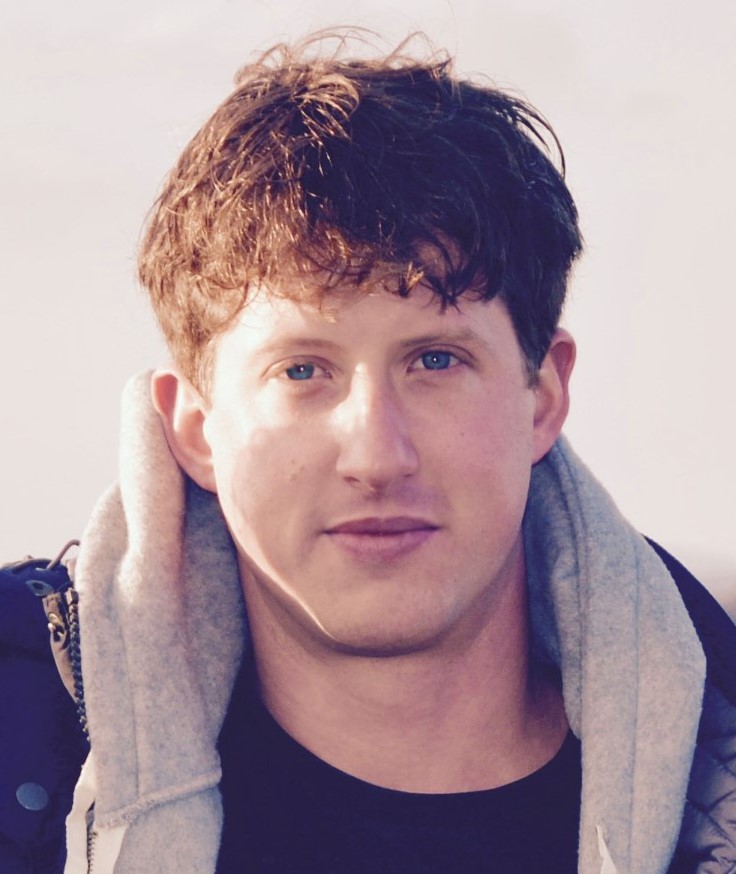David Holz
Dr.-Ing. David Holz
- 2013 B.Eng. in Mechanical Engineering, DHBW Ravensburg – Campus Friedrichshafen
- 2013 – 2015 Development Engineer, Mechatronic Systems, Brose Fahrzeugteile GmbH & Co. KG, Würzburg, Germany
- 2017 M.Sc. in Computational Engineering, Friedrich-Alexander-Universität Erlangen-Nürnberg
- 2018 – 2023 doctoral candidate, Institute of Applied Dynamics, Friedrich-Alexander-Universität Erlangen-Nürnberg
- 2024 – postdoctoral researcher, Institute of Applied Dynamics, Friedrich-Alexander-Universität Erlangen-Nürnberg
theses
2017
- :
Computing fibre orientation for a finite element model of a rat heart (Master thesis, 2017)
reviewed journal publications
2023
- , , , , , , :
Transmural fibre orientations based on Laplace-Dirichlet-Rule-Based-Methods and their influence on human heart simulations
In: Journal of Biomechanics (2023), Article No.: 111643
ISSN: 0021-9290
DOI: 10.1016/j.jbiomech.2023.111643 - , , , :
Smoothed finite element methods in simulation of active contraction of myocardial tissue samples
In: Journal of Biomechanics (2023)
ISSN: 0021-9290
DOI: 10.1016/j.jbiomech.2023.111691
2022
- , , , , , :
Support Pressure Acting on the Epicardial Surface of a Rat Left Ventricle — A Computational Study
In: Frontiers in Cardiovascular Medicine 9 (2022)
ISSN: 2297-055X
DOI: 10.3389/fcvm.2022.850274 - , , , , , :
Comparison of stress and stress–strain approaches for the active contraction in a rat cardiac cycle model
In: Journal of Biomechanics 134 (2022), Article No.: 110980
ISSN: 0021-9290
DOI: 10.1016/j.jbiomech.2022.110980
2021
- , , , , :
A Transmural Path Model Improves the Definition of the Orthotropic Tissue Structure in Heart Simulations
In: Journal of Biomechanical Engineering-Transactions of the Asme 144 (2021), p. 031002 (10 pages)
ISSN: 0148-0731
DOI: 10.1115/1.4052219 - , , , , , , , :
Passive mechanical properties in healthy and infarcted rat left ventricle characterised via a mixture model
In: Journal of the Mechanical Behavior of Biomedical Materials 119 (2021), Article No.: 104430
ISSN: 1751-6161
DOI: 10.1016/j.jmbbm.2021.104430 - , , , :
Towards the simulation of active cardiac mechanics using a smoothed finite element method
In: Journal of Biomechanics 115 (2021), p. 110153
ISSN: 0021-9290
DOI: 10.1016/j.jbiomech.2020.110153
2019
- , , , , :
Interaction of the mechano-electrical feedback with passive mechanical models on a 3D rat left ventricle: a computational study
In: Frontiers in Physiology 10 (2019), p. 10-41
ISSN: 1664-042X
DOI: 10.3389/fphys.2019.01041
URL: https://www.frontiersin.org/articles/10.3389/fphys.2019.01041/abstract
conferences and proceedings
2023
- , , , :
Smoothed finite element methods in modelling and simulation of active cardiac contraction
conference, 18th International Symposium on Computer Methods in Biomechanics and Biomedical Engineering (Paris, 2023-05-03 - 2023-05-05)
2022
- , , , , , :
The influence of the orthotropic tissue in an electromechanical heart model
conference, 27th Congress of the European Society of Biomechanics (Porto, 2022-06-26 - 2022-06-29)
2021
- , , , , :
Discontinuous Galerkin-based approach to define orthotropic tissue structure in computational heart models
conference, International Conference on Computational Biomechanics (Paris, 2021-09-20 - 2021-09-21) - , , , , , , , :
Characterisation of passive mechanical properties in healthy and infarcted rat myocardium
conference, GAMM Annual Meeting (Kassel, 2021-03-15 - 2021-03-19) - , , , , , , , :
Influence of passive mechanical properties in healthy and infarcted rat myocardium on the cardiac cycle
GAMM Annual Meeting (Kassel, 2021-03-15 - 2021-03-19)
In: Proc. Appl. Math. Mech. (PAMM) 2021
DOI: 10.1002/pamm.202100054
2019
- , , , , :
Computational study of ventricular fibrillation by considering a strongly coupled electromechanical rat heart model
GAMM Annual Meeting (Vienna, 2019-02-18 - 2019-02-22)
In: Procc. App. Math. Mech. (PAMM) 2019
DOI: 10.1002/pamm.201900227 - , , , , , :
Nonlinear fibre distribution in a finite element model of a human left ventricle for sparse and non-constant data sets
8th GACM Colloquium on Computational Mechanics (Kassel, 2019-08-28 - 2019-08-30)
In: Proceedings of the 8th GACM Colloquium on Computational Mechanics 2019 - , , , , , :
Nonlinear fibre distribution in cardiac modelling
25th Congress of the European Society of Biomechanics (Vienna, 2019-07-07 - 2019-09-10) - , , , , , :
Möglichkeiten und Perspektiven der Modellierung und Simulation
Wissenschaftliche Jahrestagung der Deutschen Gesellschaft für Thorax-, Herz- und Gefäßchirurgie (Wiesbaden, 2019-02-16 - 2019-02-19)
2018
- , , , , , , , :
Simulation of cardiac electromechanics of a rat left ventricle
GAMM Annual Meeting (Munich, 2018-03-19 - 2018-03-23)
In: Proc. Appl. Math. Mech. (PAMM) 2018
DOI: 10.1002/pamm.201800326 - , , , , :
Computational model of a rat left ventricle
8th Summer School on Biomechanics, from Protein to Tissue to Organ: Modeling and Computation (Graz, 2018-09-03 - 2018-09-07)
2017
- , , , , , , , , , , :
Modelling cardiac mechanics and electrophysiology of a rat left ventricle: A case study.
International Conference on Biomedical Technology (Hannover, 2017-11-06 - 2017-11-08)
further publications
-
Establishment of a heart support system as a contractile membrane based on the pericardium
(Third Party Funds Single)
Term: 2016-05-01 - 2022-07-15
Funding source: StiftungenThis projectcontains the establishment of a heart support system as a contractile membrane based on the pericardium to minimize theconsequences of severe heart disease and to maintain proper cardiacfunction. The project is a research cooperation between the Institute ofApplied Dynamics and the Pediatric Cardiology at the Friedrich-Alexander-Universität Erlangen-Nürnberg and is funded by the Klaus Tschira Foundation.
The project includes the study ofcardiac function under pathological and normal conditions by developing computer models of the heart, which are validated with experimental data ofpediatric cardiology of the University of Erlangen Nuremberg. The clinicalmeasurements and experimental data, as well as the simulation model are basedon rat hearts. Subsequently, a cardiac support system based on a membrane is to be designed to improve or at least maintain heart function under pathological conditions.
In particular at the Institute of Applied Dynamics, we are focusing on the development of theunderlying computational heart model including the anatomy, morphology,electrophysiology and also the fluid-structure interaction to be able to buildup the optimized heart support system but also to better understand thefunction of the heart and thus to predict or early detect cardiac dysfunctions andbring new treatments to the clinic.

